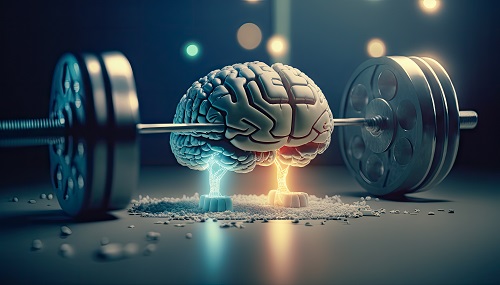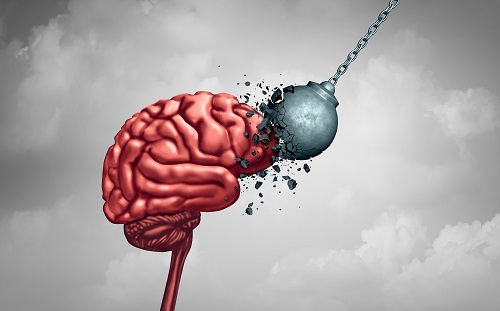
“Too often, sport psychologists are asked to ‘fix’ struggling athletes with mental problems as they approach major competitions or rebound from poor performances. Although MST (mental skills training) programs may prove beneficial in the short run to develop skills and deal with specific problems, such approaches fail to address athletes’ long-term development goals” (Holliday et al., 2008, p. 205).
I love this quote because it encapsulates my work as a mental performance coach.
I can’t tell you how many texts, emails, or phone calls I get from a distraught parent whose young athlete is going through mental challenges related to their sport. To their credit, such parents have the awareness to know that the athlete, their coaches, or themselves do not have the capabilities to properly support the young person through their challenges.
That being said, the expectation is that I will help them to “fix” a problem that has likely developed over many years in a very short period of time. I am certainly willing to do whatever it takes to help the young athlete because this is my fundamental mission as a mental performance coach. However, I try to set reasonable expectations about what is possible in the short-term.
I try to communicate two simple things very clearly at the beginning of a coaching relationship:
I don’t have a silver bullet to fix your problems. It takes work from both of us. Proactive mental training is likely to be better than reactive mental training. When I ask young athletes how much physical training they do, the answer is typically, “A LOT.” Then when I ask how much mental training they do, the answer is almost invariably, “NONE.”
Nowadays, young athletes continue to compete and train outside of their primary team season. They continue to play their sport, seek private instruction, and spend countless hours in the gym trying to get bigger, faster, and stronger. Frankly, it’s basically non-negotiable if you have aspirations of competing in college athletics or becoming a professional.
Yet, I have rarely come across young athletes and families who are seeking out proactive mental training during the summer. Perhaps it’s due to a lack of awareness. Perhaps it’s due to limited financial resources. Or, perhaps it’s simply a function of not wanting to think too hard while school is out. However, summer is a perfect time to focus on building new mental skills without the rigors of competition and school weighing on young athletes.
In 2008, Holliday and colleagues published a study on the concept of periodization in mental training. Periodization is a pretty common concept for strength and conditioning coaches as different phases of training are adopted through the year depending upon the demands upon the athlete. However, periodization is seemingly under-studied in the sport psychology literature.
Holliday and colleagues identify four phases in training. The “prep microcycle” is the period when athletes “concentrate on learning new mental tools and skills” (p. 212).
In the prep phase, which is essentially akin to the offseason or a high school athlete’s summer, athletes might be educated on specific mental skills like goal-setting, self-talk, and imagery. Critical elements of each skill are taught by a mental performance coach along with guidance on how to develop and implement an execution plan, similar to a strength and conditioning program. Effectively, the athlete is using the eight to 12 week period to develop and grow from a mental skills perspective.
In their study, Holliday and colleagues conducted a case study by implementing a mental skills training periodization program with an Olympic athlete. It’s probably safe to say that most young athletes don’t have the same motivation or aptitude as an Olympic athlete, so introducing the same level of complexity in programming would likely be overwhelming or even counterproductive. However, the same principles of periodization can be applied with less “elite” athletes while introducing much simpler mental skills concepts to build their mental toolbox in the offseason.

My offseason mental training program for young athletes, particularly those in high school, incorporates three basic skills:
-
- Reflection
- Goal-setting
- Mindfulness
Reflection
Reflecting on the prior year or season can provide young athletes with a wealth of information that can be used to improve. Reflection simply requires a bit of quiet time and a pen and paper to answer questions like:
-
- What did you do well this past year?
- What has worked for you that you would like to continue to do (more of) next year?
- What hasn’t worked for you that you’d like to discard (i.e., get rid of)?
- What are your areas for improvement?
I would venture to guess that the vast majority of young athletes spend little to no time reflecting on their past year or season in a constructive way. If they do, it might include daydreaming about the glory or beating themselves up for glaring mistakes or failures. However, taking the time to objectively and calmly reflect on the past year will yield a lot of really valuable information that can be leveraged into growth.
Goal-Setting
The information collected in the reflection process can now be used to set goals for improvement. Specifically, I urge young athletes to set goals for the two to three month period in the summer to keep it focused and manageable. Having short-term goals will also aid in keeping motivation throughout the summer.
When setting goals, I would urge young athletes to think about the following questions:
-
- Why are you pursuing these goals?
- What do you want to get better at in the short-term?
- How will you get better this summer?
The goal-setting process is designed to help athletes focus on what they can control to maximize their chances of improvement rather than focusing on outcomes that are out of their control. Focusing on the offseason as a time for development can help athletes reframe their definition of athletic success.
You don’t always achieve the outcomes or results that you would like to see, but it doesn’t mean that you are a failure. If you can say that you achieved goals that you can control every single day during the summer, then your offseason may actually seem like a success.
Practicing mindfulness
Finally, I always urge my coaching clients to adopt a mindfulness practice. Young athletes will benefit greatly by adding this mental skill into their mental “toolbox.” If an athlete advances his mindfulness ability in the offseason, then they will have taken a tremendous step forward that most of their peers haven’t.
I believe that mindfulness is the most important skill that any athlete, young or old, can incorporate into their mental game.
Why?
Practicing mindfulness is the foundation for building present moment awareness. If an athlete is aware of what they are thinking and feeling in the present moment – particularly in stressful situations like during a game or meet – then they will have the best chance to shift their mindset to where it needs to be to perform at their best. Without present moment awareness, then athletes get stuck dwelling on the last play or worrying about the future asking themselves, what if?
The beauty of mindfulness is that it is simple. It really only requires five minutes every day. Download a mindfulness meditation app like Headspace or Insight Timer on your phone, find a quiet place to sit, plug in your headphones, and practice getting comfortable with your thoughts for five minutes without any distractions.
Despite the fact that building a mindfulness practice is simple, it is not easy. What do I mean? Just because it doesn’t take much, it still requires a concerted effort to spend the five minutes every single day in solitude and probably in discomfort trying to build your mindfulness “muscle.” It can be very challenging at first. I urge athletes to stick with it because it is truly about the journey, not achieving a specific outcome.

Part of sticking with a skill-building practice in the offseason is understanding your motivation. Ask yourself the question, why am I doing this?
It’s hard for me to answer this question for you. You will have to look inside to determine whether you are willing to invest the time and energy into your mental game this offseason. That said, I think there are three very valuable outcomes that will come with offseason mental training:
-
- Take control of your mental game. I teach my young athletes that they have control over their mindset. You can’t control the subconscious (and often unwanted thoughts) that enter their mind, but they do control what they do with them. Building awareness of your thoughts and feelings may be uncomfortable, but allows young athletes to make better choices, as well as remaining confident in the present moment when needed.
- Gain an edge over your competitors. I can guarantee you that the vast majority of young athletes are not proactively working on their mental game in the offseason. Investing a modest amount of time to make gains in the mental gym can really separate you from your competition. Mental training isn’t always about fixing problems – it’s about developing as an athlete.
- BE READY for your next season. Investing in mental training can produce a very significant return on investment for young athletes because it’s something they’ve never done before. Adding new skills to their mental toolbox in the offseason allows young athletes to be more prepared to perform and deal with adversity in the coming season.
In short, if you think well, then you will feel well. If you feel well, then you will perform well.
If you want to take your mental game to the next level this offseason, then visit https://michaelvhuber.com to download my free Offseason Mental Training Guide. It will be like having your very own mind gym at the touch of your fingers.
Please reach out to me directly via email at michael@ftbcoaching.com if you have any questions.
References – Burton, D., Freigang, D., Hammermeister, J., Holliday, B., Naylor, S., & Sun, G. (2008). Building the better mental training mousetrap: Is periodization a more systematic approach to promoting performance excellence? Journal of Applied Sport Psychology, 20, 199-219.
